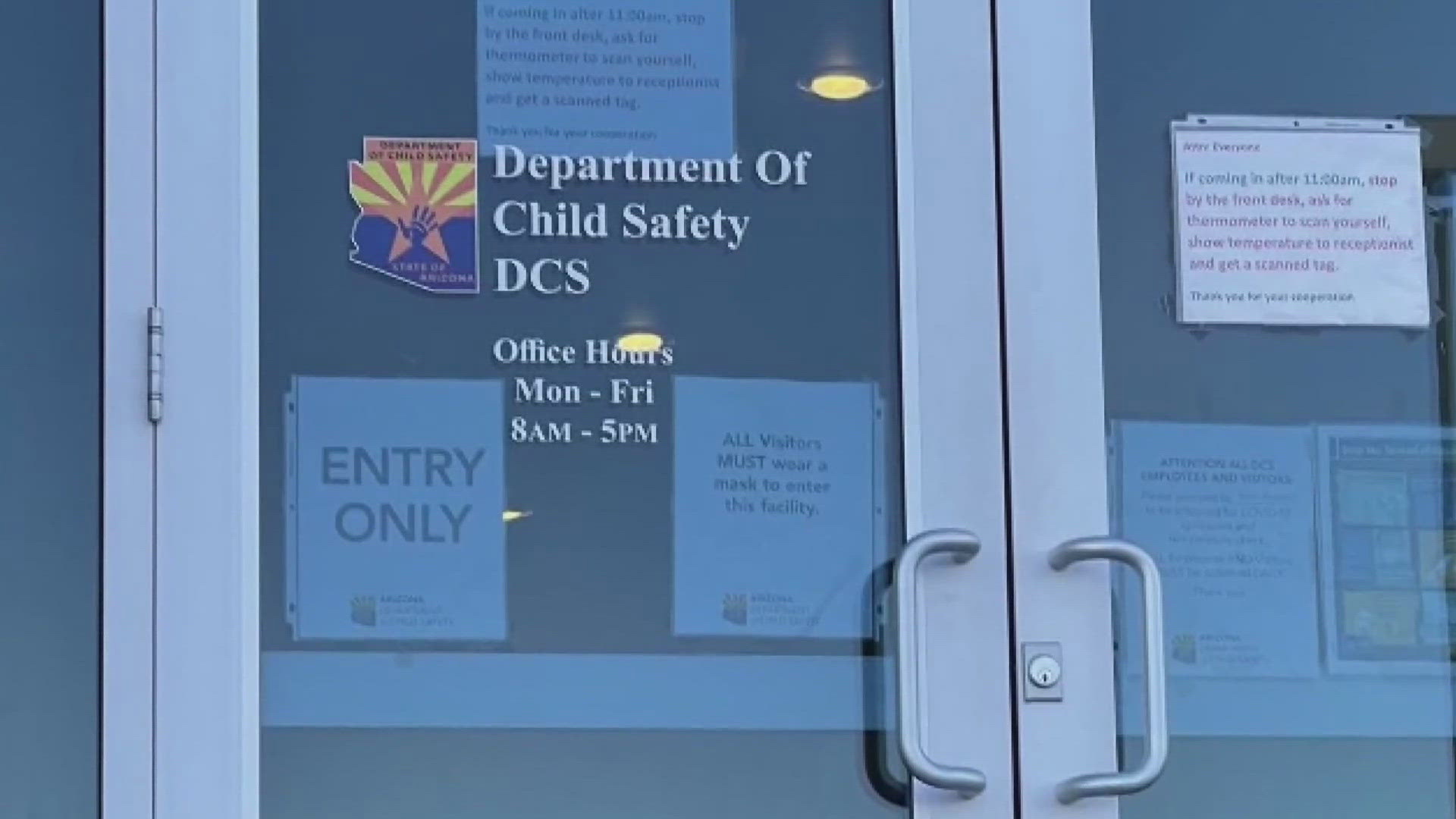PHOENIX — In 2024, the Arizona Department of Child Safety's budget was cut by between 3.5 and 4 percent, prompting the department to make difficult decisions on where to make changes to its bottom line. One area hit the hardest was security services, leaving all of their buildings without assigned security guards.
“I hope the legislature this year will understand the difficult job that we're doing to keep children safe, but also to keep families together for good outcomes." Deputy Director David Lujan said.
His call for more funding comes after one of his employees was violently assaulted on camera at the DCS office in Mesa on Tuesday. 32-year-old De'Andre Johnson has been charged with attempted murder, accused of choking the case worker for several minutes before throwing him to the ground.
“A very horrific example of, sort of the unpredictable nature of this work," Lujan said.
The deputy director said a lot of other DCS employees are "traumatized" by what the video of the assault shows. But could it have been prevented?
Court documents say Johnson made a threat to the very same case worker last week. The caseworker told police Johnson said he was going to "kill him" and only refrained from doing so because his daughter "vouched" for him.
12News asked Lujan why another caseworker or DCS employee was not accompanying him during the one-on-one meeting with Johnson.
“We're still looking into the facts of what happened in this case. We really work to make sure that when our staff do feel like there's a threat, we've worked to try and give them the tools so that, like they work in pairs or they call law enforcement to accompany them on visits, or whatever they feel is needed," he said.
Lujan tells 12News that a security guard, paid for by the company that owns the Mesa office building, was present inside the building when the assault was occurring. However, Lujan says they were not in a position to intervene.
In addition to finding new ways to protect DCS employees, Lujan says an alert system is set up to allow caseworkers to alert local law enforcement of threats made to them.
“I don't think that's the sole solution here. We have given our caseworkers that alert system. We're looking at doing additional de-escalation training. We are building relationships with local law enforcement so whenever they do feel like there's a threat law enforcement can go with them to investigate," Lujan said.
Watch the video below for a legal deep dive into the case.


